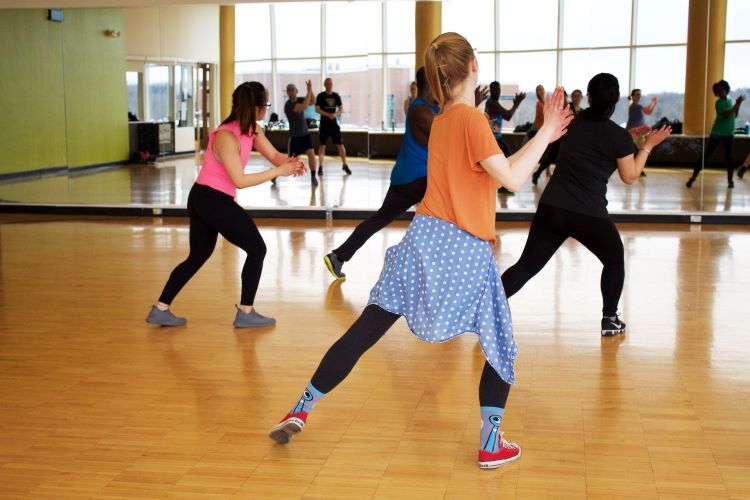It’s no wonder with the chaotic lives people live juggling work, family responsibilities, and social activities that mental health is affected.
This is even more apparent with the cost of living crisis where people are feeling real financial strain, which, of course, impacts everything.
According to one survey, 74% of people in the UK are overwhelmed by stress.[1] That’s a huge amount.
Stress management entails much more than a violent or frustrated squeeze on a stress ball. Here we’ll look at proven techniques that are used in healthcare and holistic settings to help with stress.
It’s useful to try out the suggestions that appeal to you and the ones that work and use them as a go-to menu during stressful moments.
For many people, this becomes a lifetime practice that helps them manage their stress levels and mental and emotional health successfully.
What are the Signs of Stress?

When thinking of stress and stress responses, you’ve likely heard of the term “fight or flight“.
This is where, during a frightening – or stressful moment – stress hormones are triggered and released, your heart rate and blood pressure increase and you might feel dizzy, get cold fingers, and experience other physical sensations (i.e. heart palpitations).
Of course, long-term stress is linked to insomnia, mental health conditions (such as depression), substance misuse, and serious illnesses such as heart disease and cancer.
It’s really important for mental and physical health that you learn a relaxation response where you activate the parasympathetic nervous system. Doing so reduces the stress response in the body and makes life much easier to face.
Different Relaxation Techniques

There are many stressful situations you face at any given time. People respond differently to different approaches according to what they’re open to.
Trying each of the following techniques provides you with a well-rounded starting place to address stress. You can try mind, body, mind and body techniques, as well as social and playful techniques.
The Mind; How To Relax It and Live a Stress-Free Life

It’s really important to learn how to relax your mind and body from stress.
Doing so not only gives you go-to coping strategies during difficult moments, but you become more self-reliant as you learn to trust yourself and also improve your future health outcomes.
Stress is very much linked to inflammation which, of course, leads to illnesses and diseases. Cancer and heart disease are just two serious illnesses that are linked to chronic stress.
So what can you do to relax the mind?
1. The power of meditation
There are plenty of benefits of meditation. Not only does it calm physiological responses, but with regular practice, you become equipped at managing stress in the long term.
This is an approach to stress that empowers you as you grow in self-awareness, self-trust, and your ability to cope.
In terms of your physical health, practising meditation can lower blood pressure, and heart rate, and improve the quality of sleep.
This latter, of course, support cognitive functioning. Interestingly, there are illnesses that meditation is associated with improving including anxiety, depression, irritable bowel syndrome, and chronic pain.
Mantra meditation is one of the easier places to start as it gives you a focus, which helps to stop the mind from wandering.
You place all your attention on a target and each time you find yourself thinking of something else, you bring yourself back to the target.
2. Mindfulness Meditation
Mindfulness meditation is a little different to traditional meditation. It’s where you connect to the present moment. It’s an approach which focuses on the senses, the body, thoughts, and the external environment through sounds or objects.
You might lay quietly in a room and start by focusing on sounds you can hear that are far away (i.e. traffic, birds, a neighbour mowing the lawn) and then bring your attention to the room (i.e. the sound of your breath, the clanging radiator).
You might list five sounds, then four things you can see, three can you feel, two you can smell, and one you can taste.
There are many types of mindfulness exercises. It becomes easier after a few weeks of regular practise. Benefits include mental focus, clarity, feeling more emotionally in tune, and channelling concentration and acceptance.

3. Begin Cognitive Restructuring
Cognitive restructuring sounds a little scary, but it isn’t. It’s a huge part of how brain health and functioning are treated in various healthcare settings through cognitive behavioural techniques.
This is a type of therapy which targets unhelpful automatic thoughts and changes them.
Changing usual thoughts to relax is instrumental in altering perception, thought patterns and behaviours.
So you might notice you’re feeling dizzy and panicky, you’ve become triggered and feel stressed.
The cognitive restructuring would mean you would take the time to relax (perhaps through breathing techniques) and then carefully identify what triggered the reaction (it might have been a “red letter” from the bank).
After this, you would identify what automatic thoughts came about linked to this (i.e. you might think, “I’m in trouble with the bank” etc. etc.).
Cognitive restructuring alters cognitive distortions (such as catastrophic thinking that “everything’s going wrong”).
After finding these unhealthy automatic thoughts, you then sensibly think about the evidence for and against the unhelpful thought, and go on to find positive thoughts that can help (i.e. “If this is a letter about bank debt, I can get help from Citizens Advice”).
4. Regular and Gratitude Journaling
Journaling is an especially useful way of processing stress, emotions, and events. It’s also an excellent way to develop self-awareness, reflect on the past, and identify goals for the future.
One way of working on stress can be achieved through gratitude journaling. This is where, each day, you write down three things you’re grateful for. Doing so can provide a mood shifter making life feel more manageable.
Journaling can develop a sensitive internal world where you can discover how to relax and be happy through words. It’s a personal form of meditation that is self-led and empowering.
5. Guided Visualisation
Guided meditations or visualisations are excellent relaxation exercises. Predominantly because not much is expected from you.
All you have to do is find an online recording or app (there are loads of free ones online) which gives you the sort of scene you’d like to mentally inhabit.
You might end up walking through a forest, lying on a beach, or even imagining yourself as a mountain. The useful thing about guided meditation is how it lowers brain waves leading you to a deep state of relaxation.
6. Your Body Clock and the Importance of Sleep
Your “body clock“, or circadian rhythm, refers to your internal bodily systems that have their natural timings.
Many are in sync with day and night time hours. Going to sleep at night is quite natural for us. It’s our physiological response to the natural environment.
Impaired sleep and insomnia can be especially destructive to cognitive functioning. This can increase stress levels.
Devising a bedtime routine supports many people to get to sleep at a good time, have healthy sleep cycles, and do all the natural “repairing” the body does when you sleep.
The Body: How to Reduce Stress Physically

As you’ve probably already noticed by looking at the items above, although they referenced mental support around stress, they’ve very much linked to physical health too.
In the case of the body, looking after physical health is also linked to mental health.
Here are some stress reducers and health tips you can physically practise:
1. Breathing Exercises
Developing breathing techniques and exercises is useful. It’s a go-to for millions of people throughout the world for those who follow advice from doctors as well as for people who seek traditional and holistic approaches.
Deep breathing and practising breathing skills create a meditative space where you can relax, fill the lungs and blood with oxygen, and activate the parasympathetic nervous system (the system that helps you calm down).
Deep breathing can lower blood pressure and heart rate, as well as improve focus and clarity.
2. How to practise deep breathing
The key to breathing relaxation is to change your breathing patterns. There are different patterns you can try.
Two useful exercises are:
- Box breathing: Here you take a deep breath into the count of 4 seconds, you hold the breath for 4 seconds, exhale for 4 seconds, hold for 4 seconds, and repeat.
- Long exhales: Here, you breathe in for 4 seconds, hold for 4 seconds, and then exhale for 8 seconds, and repeat.
3. The strength and stress relief from exercise
Exercise is an excellent way to manage and reduce stress levels.
Not only does it provide an excellent mental distraction and focus on healthy activity, but it also releases endorphins (a feel-good chemical in the brain) and improves your physical health.
Whether you get involved with gentle stretching, aerobic exercise, or weight training, all have benefits.
A tai chi or yoga class can be a great, non-intimidating place to start and one of the most beneficial elements of these exercises is the fact that they connect the mind and body and breath.
4. Eat a nutritious diet
It might seem obvious but following a healthy, well-balanced diet is important to support the body and mind.
Getting all the essential vitamins and nutrients through healthy foods makes all the difference in supporting brain chemistry, hormones, moods, and the ability to cope.
Likewise, cutting out junk food, caffeine, alcohol, and drugs make a huge difference in managing stress levels.
Using the Mind-Body Connection to relax

Below, we discuss how to use the mind-body connection to relax:
1. Progressive muscle relaxation
Using progressive relaxation where you connect to a different part of the body at a time is a calming way to address stress immediately.
It’s something you can do anywhere at any time. It’s grounding and gives you something healthy and positive to focus on.
You can do it sat down, but it’s particularly nice to do led down. Employing breathing techniques at the same time as this can deepen the activity.
As well as releasing muscle tension, it brings you back to the present and into your body (rather than staying in stressful thoughts).
So what you do is tighten and then relax a different muscle group at a time. Start with your toes and feet, then calf muscles, thighs, your butt etc. Take time to do this and by the time you’re squeezing your facial muscles, you’ll feel chilled.
2. Emotional Freedom Therapy
This is a really helpful exercise you can do which activates the parasympathetic nervous system by tapping different parts of your body. It’s especially helpful when you’re feeling emotionally triggered or are experiencing panicky sensations.
You start by tapping the top of your head for thirty seconds, then your forehead, your temples, and other places (look it up on Youtube) and this helps calm the fight or flight response.
3. Cold Exposure
Cold exposure is when you submerge into very cold water. This might be in a bath, out in nature in a river, or by turning your warm shower cold for 30-120 seconds.
Wim Hoff has made cold therapy famous and it’s proven now to support people to emotionally regulate. It’s great at bringing you “back into your body” at times when mental stress can feel overwhelming.
Connecting to the Senses to relax

You can try aromatherapy, using essential oils to calm the mind and impact the body through scent and their medicinal properties.
Self-massage or regular massage brings you back to touch, it’s also a powerful way to soothe.
1. Connect to Others
- Help others: Helping others introduces a meaningful purpose and adds value to your life. This draws attention away from the things that might stress you out unnecessarily as you concentrate on others. As well as this, helping others gives you a social connection. As human beings, we’re social creatures who need others to thrive.
- Connect with others: This is a little different to the above tip, which was concerned with you helping others. Connecting to others is more geared towards you receiving help from others. It’s really important when you’re facing ongoing stress to access your personal support network. This is your friends, family, colleagues, and people you know in community groups. It might even be your barking furry friend! Never underestimate the power of talking. The saying “a problem shared is a problem halved” is true, it reduces ruminations, provides helpful feedback, and helps you make sense of things from what can often be a more objective point of view.
2. Connect to Nature
Get outside and spend some time in nature. This is a notorious way to relieve the effects of stress and gets your serotonin flowing.
Be sure to put effort into connecting to your surroundings; notice the trees, plants, and animals. Let yourself be grounded through the natural environment.
3. Relax using Art, Dance, and Play
Here we are towards the end of the blog and we’ve reached the fun part. Never forget the power of art, music, dance, and play.
Get involved with fun expressive activities; they release stress, calm brain activity, and also help you feel and process emotion through movement, sound, and visual means.
You can try:
- Listening to music
- Playing an instrument
- Drawing and painting
- Crafts
- Baking
- A laughing workshop
- Skipping
- Board games
Final Thoughts

While it’s really helpful to develop a skill set of mental health techniques to manage stress, it’s also important to bear in mind that in some cases seeking medical advice is advisable.
If you’re doing everything you can to develop a positive outlook and manage stress, but it feels like nothing is working it can seriously negatively impact your health and the rest of your life.
In such cases, contact your local GP for guidance. If you’ve started using alcohol or drugs to self-medicate around stress you might also require additional support.
Drop OK Rehab a message in the Live Chat box for advice on substance use and treatment options.
References
[1] https://www.mentalhealth.org.uk/about-us/news/survey-stressed-nation-UK-overwhelmed-unable-to-cope






